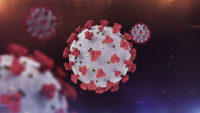Study: Composting for Mushroom Production Kills Pathogens in Manure, Eliminating FSMA Issues
Source: Penn State University
Strict requirements on the use of animal manures in fresh produce production imposed by the Food Safety and Modernization Act (FSMA) threatened to adversely impact the mushroom industry, which relies on horse and poultry manure for a specialized growth substrate. But a new study shows that heat generated during the traditional composting process — originally developed to kill insect and fungal pests of mushrooms — is adequate for eliminating human pathogens that might be present, according to researchers in Penn State's College of Agricultural Sciences.
As a result of those findings, which were published in a recent issue of the Journal of Food Protection, there will be no restrictions on the mushroom industry composting process, noted co-author Luke LaBorde, associate professor of food science and Penn State Extension specialist in farm food safety.
LaBorde called the Food Safety Modernization Act the most sweeping reform of U.S. food safety laws in more than 70 years.
"The intent of the law is to change the way we as a country ensure the safety of our food supply," he said. "Instead of responding to an occurrence of contamination or an outbreak of foodborne illness, food industries now are challenged to be proactive in recognizing potential food-safety hazards in their operations and establishing control measures to prevent them from occurring."
The complexity of this shift in thinking is evident in the timing of the rulemaking process, LaBorde explained. The act was signed into law by President Barack Obama on Jan. 4, 2011, but took two years for the U.S. Food and Drug Administration to begin releasing draft rules for public comment.
"Although each of the regulations that will come out of the food safety act may affect the mushroom industry," LaBorde said, "the proposed rule, 'Standards for the Growing, Harvesting, Packing, and Holding of Produce for Human Consumption,' also known as Produce Safety Standards, will have the most direct impact on mushroom farmers."
The Produce Safety Standards rule includes requirements for controlling potential food safety hazards in areas where contamination is most likely to occur. These include crop-contact water use for irrigation and other agricultural purposes; farm-worker hygiene; sanitation conditions affecting buildings, equipment and tools; and use of soil supplements containing animal manure.
FDA's preventative approach for ensuring the safety of produce is closely aligned with that of the Mushroom Good Agricultural Practices program — also called MGAP — a set of voluntary farm food-safety standards developed by the American Mushroom Institute and Penn State's Department of Food Science, said LaBorde.
Among MGAP core principles is a guideline calling for careful management in the use of animal products in substrate, casing or supplement preparation in order to minimize the potential for microbial contamination of mushrooms.
"Perhaps at the top of the list of FDA's farm food-safety issues is the use of raw and composted animal manures for conditioning and providing nutrients to agricultural soils," he said. "Animal manure is a likely source of many human pathogens, and crop contamination with animal feces has been linked to foodborne outbreaks. The Produce Safety Standards propose to establish a nine-month interval between application of raw manure and harvesting."
Any composting treatment that claims to reduce levels of human pathogens must be a scientifically valid, controlled, physical and/or chemical process or composting process that meets or exceeds specific microbial standards. Microbial limits for compost are linked to criteria on whether it can contact the crop and the amount of time between the treatment and harvesting.
"The draft rule states that compost suppliers will be required to document that microbial standards are achieved," LaBorde said. "On-farm composters will be required to document that time and temperature conditions for a validated process are consistently achieved."
There are no known cases of foodborne illness attributed to consumption of fresh mushrooms grown in North America, LaBorde stressed. Therefore, it is likely that industry use of horse and poultry manures in mushroom growth-substrate formulations is safe.
"However, absence of evidence is not evidence of absence, and FDA's new regulatory approach will require the mushroom industry to provide scientific evidence that commercial composting is capable of eliminating human pathogens in raw manures," he said. "Our research provides some answers on the issue of the fate of human pathogens in mushroom growth substrate during phase II composting."
Other Penn State researchers participating in the study were Jennifer Weil, who received her master's degree in food science; Catherine Cutter, professor of food science; and Robert Beelman, professor emeritus of food science. The study is available online at http://psu.ag/1bBevBY.
Looking for a reprint of this article?
From high-res PDFs to custom plaques, order your copy today!





